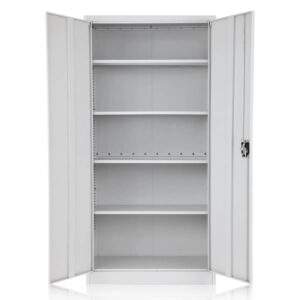EPS Ceiling Panels vs. Traditional Materials: A Cost-Benefit Analysis
Selecting the material is
essential to determine the outcome of any construction project. It is also
important to have information about some modern tendencies in Popo’s production
and among the latest treasures we can mention EPS ceiling panels. This article
focuses on the economic impact of EPS ceiling panels on regular materials.
Initial Cost
Material cost is usually an essential primary cost in any construction plan. Popular classical materials such as plasterboard and timber have always been chosen due to the availability of these products and due to experience. But they are usually on the expensive side especially the cost of the material or the labor cost. In this regard, there are EPS ceiling panels that are made from expanded polystyrene which is relatively cheaper. These panels are slim and do not require any professional help in installation, therefore, cutting on the costs of labor massively.
Installation Efficiency
Conventional products and designs are largely reliant on expert personnel and a substantial amount of time to implement in buildings. Some of the common materials used in building have a cumbersome method of installation; for instance, plasterboard requires cutting, fixing as well as finishing. This process also affects projects as the timeline is elongated and labor cost is also affected. Whereas, EPS insulated panel are developed for simple and fast fixing.
Durability and Maintenance
Sturdiness is chief among
the criteria of material choice. Lumber is comparatively a traditional material
which is a menace to pests and changes of moisture which therefore requires
constant repairs and replacement. Plasterboard is relatively more resistant to
damage and abrasion but like any other material, it needs to be often cleaned
and painted to retain its aesthetic value of use. In this respect, EPS ceiling panels spilled out the competition. They are also secured from
moisture, pests, and mold hence longer span of use with minimal requirements of
repair and maintenance. It also means long-term cost savings, which is a major
advantage of using such facilities.
 |
| EPS Ceiling Panels |
Reduction of energy consumption in buildings is a requirement that is continuously being emphasized in the current construction projects. Sheltered by EPS ceiling panels, they help to insulate heat optimally, thus increasing energy-saving capabilities. They help to provide a constant internal climate, thereby minimizing the need for using a lot of energy for heating or cooling, which over the years amounts to great savings on energy bills.
Environmental Impact
The concept of sustainability is slowly gaining credence when it comes to construction. Wood and most conventional materials are regarded as having negative effects on the environment due to their exploitation leading to deforestation. EPS insulated panels are relatively environmentally friendly compared to the other types of insulated panels. They also have lower energy consumption which is good for the environment as recommended by green buildings.
Conclusion
Conclusions concerning the
economic characteristics of EPS ceiling panels compared to conventional
materials prove the necessity of utilizing EPS panels. The advantages of solar
power include having a relatively low initial cost, installation time is faster,
fewer frequencies of maintenance, more efficiency in the use of energy, and
causing minimal harm to the natural environment. When analyzing today’s
construction designed for cost-efficiency and environmental considerations, EPS
has higher prospects.



Comments
Post a Comment